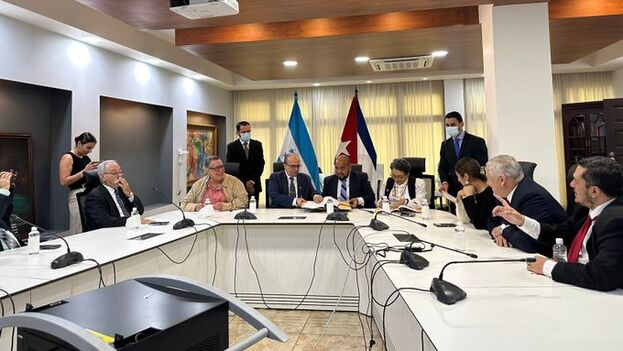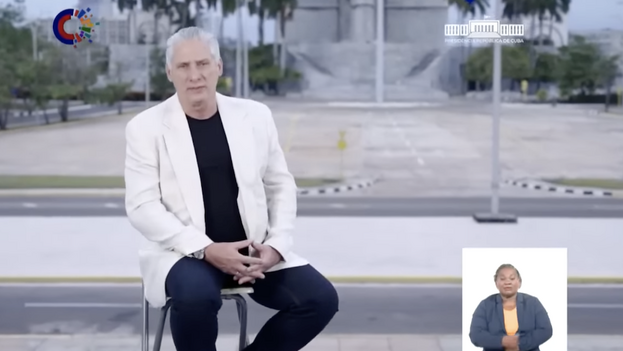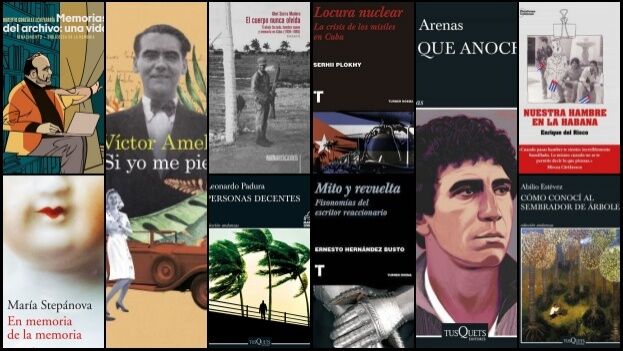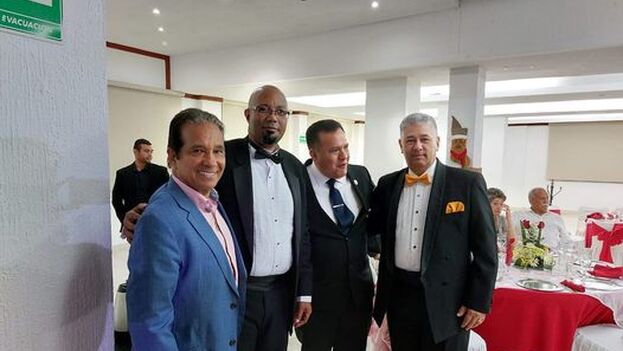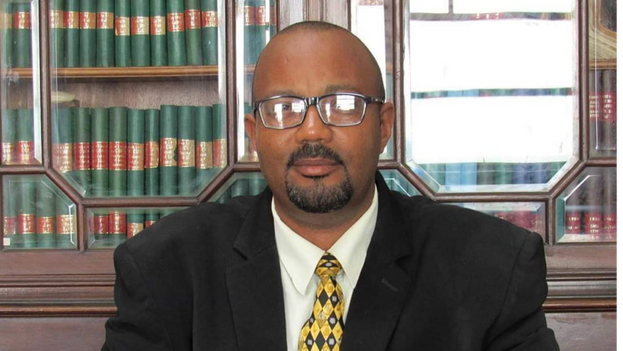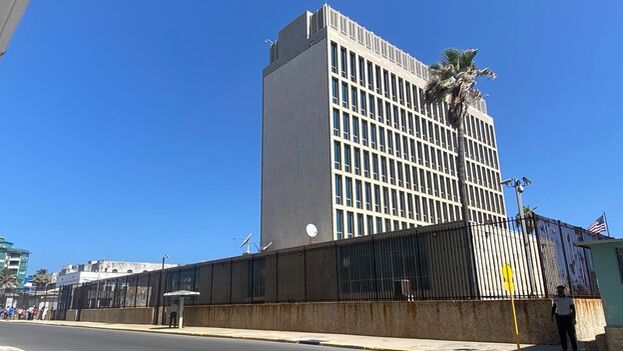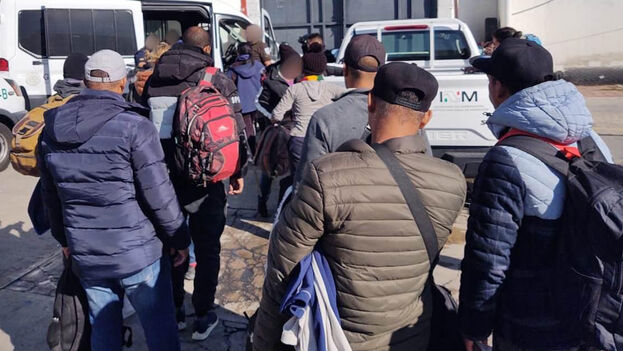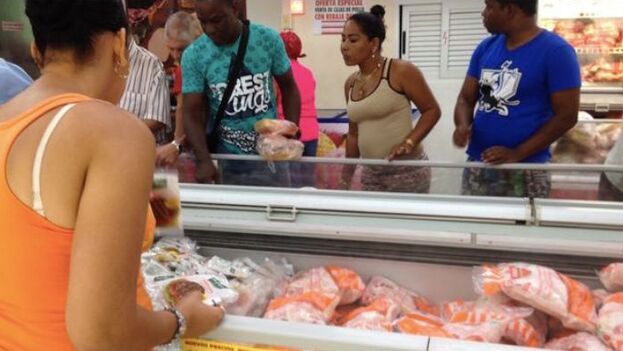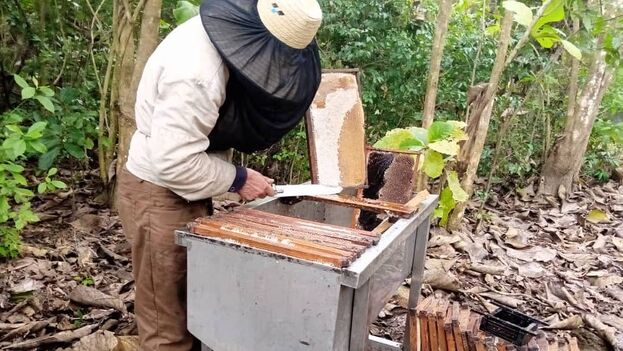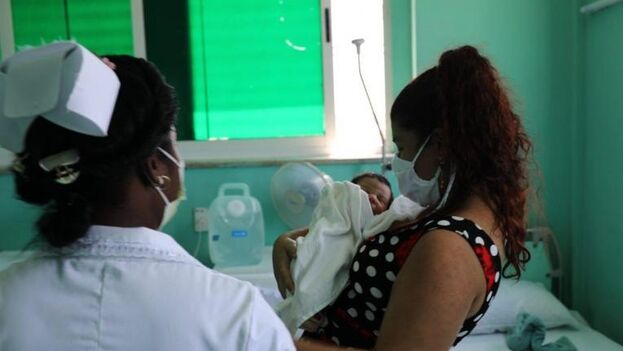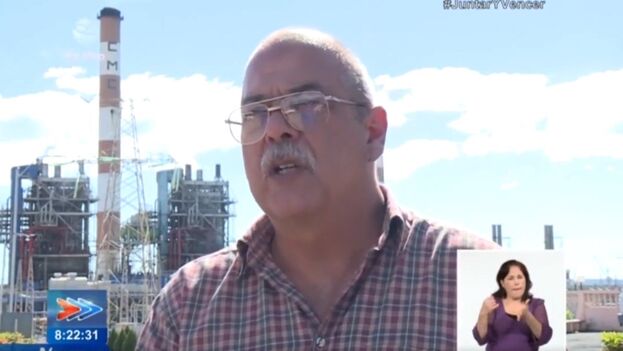
![]() 14ymedio, Madrid, 4 January 2022 — Cuba will again suffer blackouts between January and April, although they will be shorter, more localized and in order to do maintenance so that in May, the National Energy System (SEN) is prepared for the start of the high consumption season with the increase in temperatures. This was reported on Tuesday in statements issued on Noticiero Estelar [Star News], by the Minister of Energy and Mines, Vicente de la O Levy.
14ymedio, Madrid, 4 January 2022 — Cuba will again suffer blackouts between January and April, although they will be shorter, more localized and in order to do maintenance so that in May, the National Energy System (SEN) is prepared for the start of the high consumption season with the increase in temperatures. This was reported on Tuesday in statements issued on Noticiero Estelar [Star News], by the Minister of Energy and Mines, Vicente de la O Levy.
This would close, if completed, the cycle started by Miguel Díaz-Canel on May 25, 2021, when he promised that at the end of that month “things” — in reference to the lack of electricity — would improve. A promise not fulfilled with the only exception of December and in the hope of what will happen in the coming months.
The Cuban president, who postponed the recovery of the SEN at various times, ended up setting the end of power cuts for the last month of the year and, in fact, it has been — although data from the Electric Union itself confirm that demand decreased at this time — supported in large part by the decrease in industrial activity and, above all, by the cold front and its cool temperatures, which made it possible to dispense with the air conditioners and fans that consume so much energy.
The Government is aware of this impact from the climate, even if it is difficult for it to admit it. On Tuesday, O Levy explained the maintenance program, which will be more intense in February because, according to his analysis — spoken in a slip of sincerity — “it is one of the coldest months and needs help.” Quick in self-correction, the minister added without hesitation, “although the results are not due to the weather; they are due to the work on the electric plants.”
The minister said that from January 5, and for ten days, unit 3 of the Carlos Manuel de Céspedes de Cienfuegos thermoelectric plant will leave the SEN, and when it is reincorporated, unit 4 will be removed for a large maintenance of 90 days. In addition, O Levy said that it will be necessary to stop Felton unit 1 again for small maintenance because, although it has been contributing 245 MW (of the 260 maximum) since December, uninterruptedly, the need for some new interventions has been detected. Unit 2, it should be remembered, has been under construction since it caught fire in June and is still in the disassembly phase. continue reading
“That means that several maintenances will coincide in some units, especially in February,” the minister explained. However, he argued, with apparent conviction, that the situation is far from that of last year. “We are estimating that there may be hours of impairment now, with a slight difference from the previous year, which coincide with a resuscitation of the economy,” he said before mentioning the large industries that are going to be back on track.
“That was not planned when we had 10 and 12 hours of blackout; now we are talking about two or three hours a day. And not for everyone and not in all the provinces. If there is an exit from a large unit on that day, there will be an impact,” he said.
O Levy added that this is based on simulations that they have done and which, not even in the worst case scenario, reflect the situation experienced last year. In addition, he said that the incorporation of two large engines in the Moa and Mariel plants, along with the energy from the new Turkish patanas [floating electric plants that generate 140 MW] will add to the SEN. “The incorporation of more power is one of the lines of action of our strategy,” he argued.
The minister made these statements during a visit to the Carlos Manuel de Céspedes thermoelectric plant, where he took the opportunity to talk to the workers and praise their work. “The collectives have remained united, working with excellent quality,” he told them.
Other planned interventions are the incorporation of 40 engines adjacent to the Cienfuegos Oil Refinery, which at one point had only two working, he explained. “We follow the same strategy at the Cruces fuel oil site. We have to be clear about how many engines have to enter the month of January, how many have to enter the month of February; how it is concretized with what we have in hand,” he said. The goal is that, when demand begins to rise in May, everything will be in full condition.
However, reactions on social networks to the minister’s video show that citizens, when talking about blackouts, do not trust promises at all. “Well, it smells like a blackout, a deficit, alumbrones [a word coined for the rare moments when the lights are ON] or whatever you want,” wrote one woman. “Maintenance every two months. If what they want is to begin the blackouts, they shouldn’t justify it so much,” added another.
The Russian news agency Sputnik, on Tuesday, reported that Iran had an interest in building thermoelectric power plants and cited statements by Mohammad Ali Farahnakian, advisor for international affairs of the Minister of Energy, allegedly collected by the Tasnim news agency, although its existence has not been proven.
In December, Miguel Díaz-Canel toured the largest energy-supplier countries for the Island: Algeria, Turkey, China and Russia. With them he achieved some future-looking agreements which could attempt to improve the situation of the SEN, but Cubans are not so sure, judging by comments like that of a user who ironized: “Let them try not paying Turkey and you’ll see.”
Translated by Regina Anavy
____________
COLLABORATE WITH OUR WORK: The 14ymedio team is committed to practicing serious journalism that reflects Cuba’s reality in all its depth. Thank you for joining us on this long journey. We invite you to continue supporting us by becoming a member of 14ymedio now. Together we can continue transforming journalism in Cuba.

